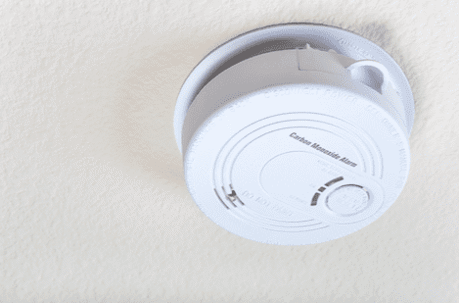Carbon monoxide (CO) can pose a serious threat to your family's safety and well-being once you begin using the heating system for the season. Having the furnace inspected by a knowledgeable HVAC company can help limit the risk of CO exposure, but you also need to make sure that all of your carbon monoxide detectors are in good working condition.
Why You Need Well-Functioning Carbon Monoxide Detectors
Carbon monoxide is a lethal gas that's created by incomplete fossil fuel combustion in equipment in your home, like a gas-fired furnace, range and water heater. If you breathe in a small amount of CO, you can develop symptoms that mimic the flu. High levels of CO in your bloodstream can cause unconsciousness and death. CO is invisible, and has no odor or taste, and you can't detect its presence, so the alarm of a working CO sensing device could save your life.
Advice For Testing and Maintenance
Here are some tips for CO detector testing and maintenance to ensure that you always have a working device in your home:
- Read and follow any manufacturer's use and care instructions in the owner's manual of all your devices.
- Make it a habit to test the functionality of your detectors every month. Just press the "testandquot; button and listen for a beep. If there's no response, put in new batteries and test it again. A device that still doesn't make any sound should be replaced.
- Put fresh batteries in all of your detectors every six months. Doing this when you're changing all the clocks at daylight saving times can make it convenient and easy to remember this vital task.
- The reliability of a CO detector declines around the five-year mark, so be sure to replace yours when they reach that age. You can make the next replacement easier by buying new models with built-in replacement alerts.
- If you'd rather have wired or plug-in detectors, choose ones with battery backup so they'll work even when the power is out.
Visit our website for in-depth information on most HVAC topics, or just give us a call at (408) 868-5500.
Our goal is to help educate our customers in the South Bay Peninsula and Santa Cruz areas of California about energy and home comfort issues (specific to HVAC systems).

